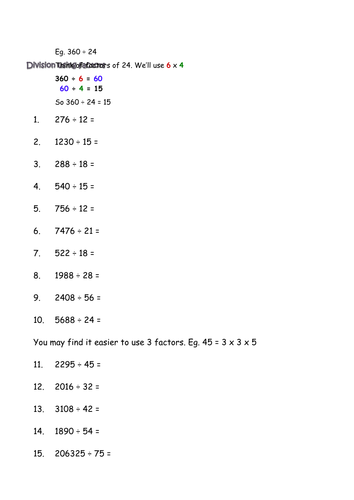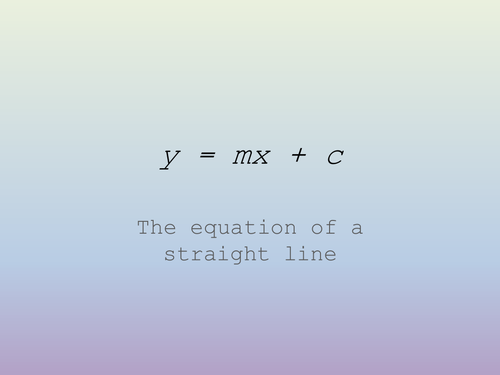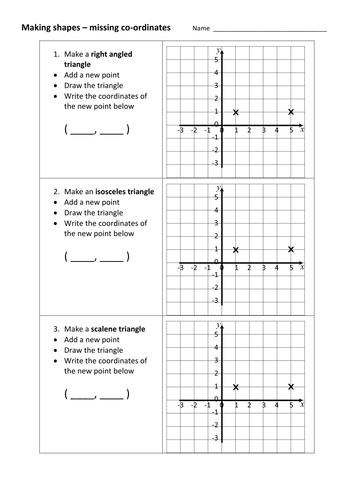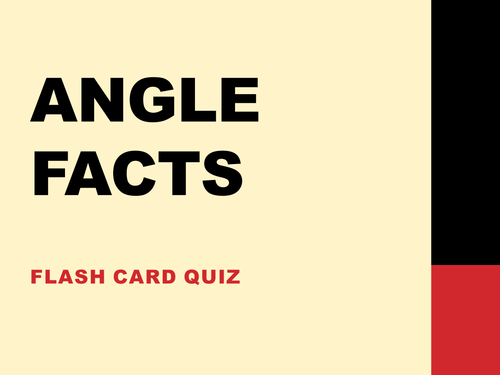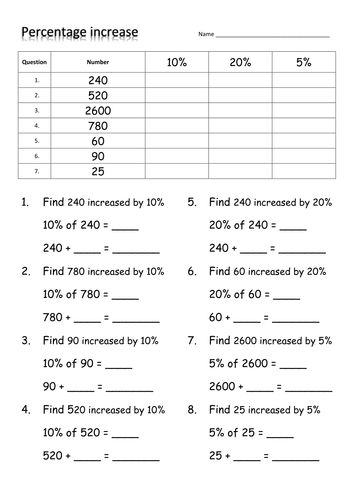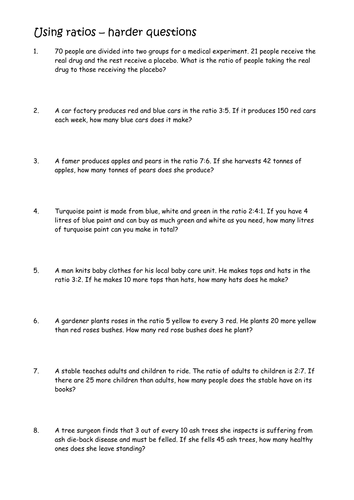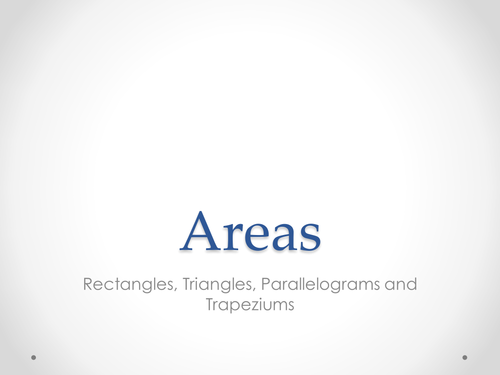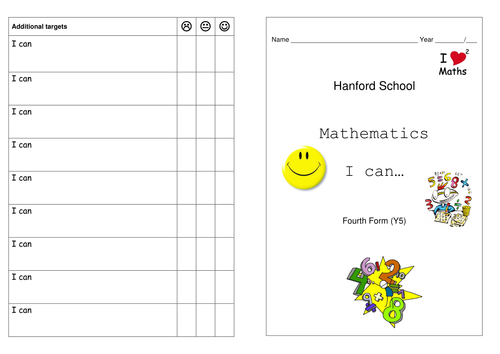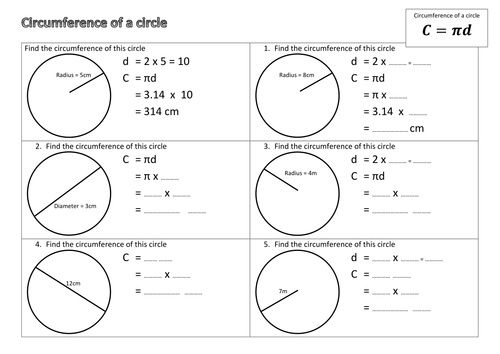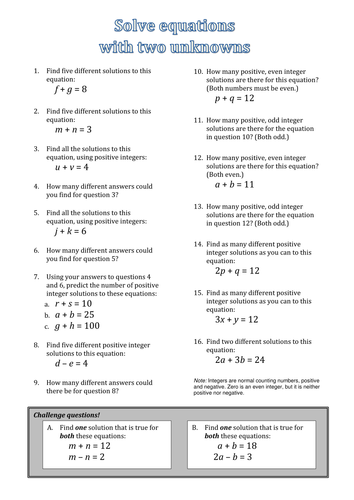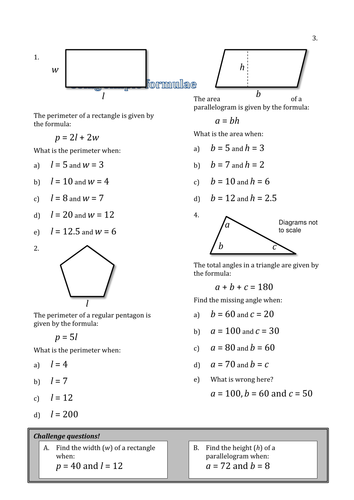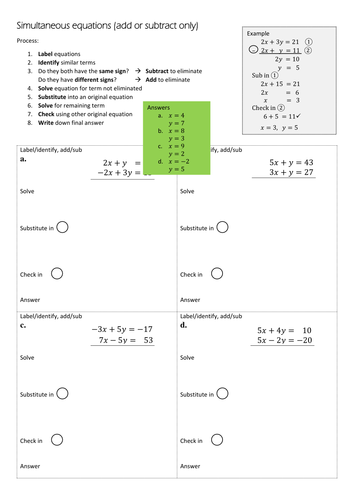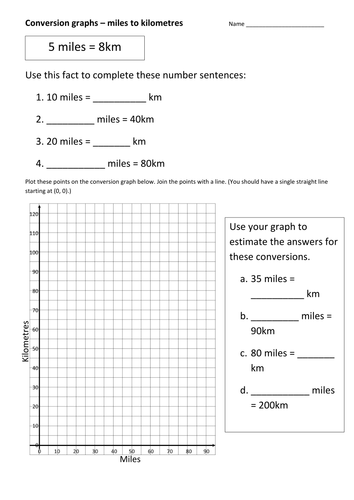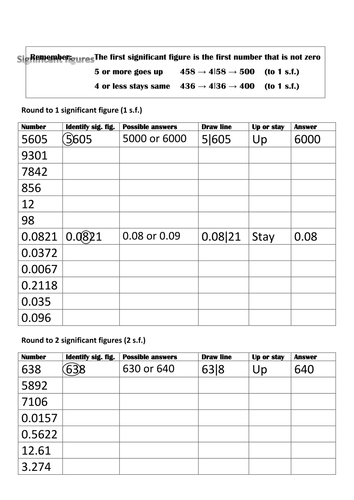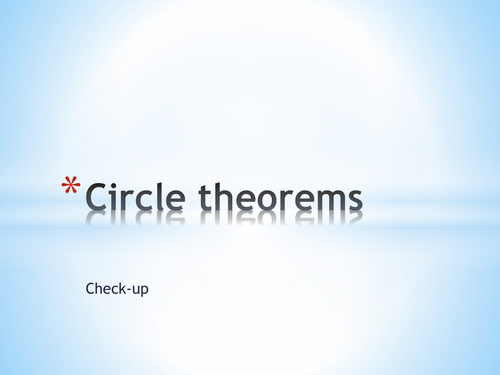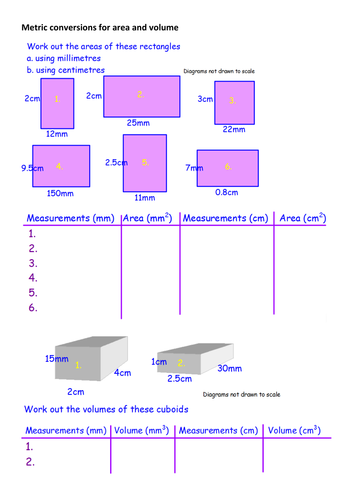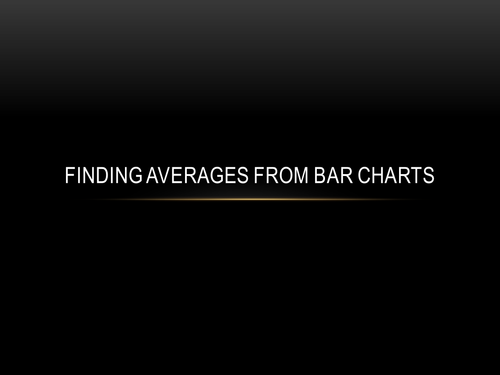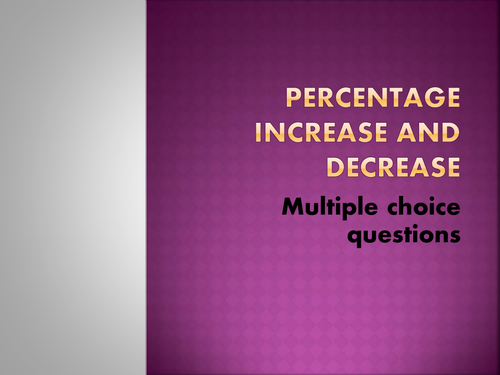
130Uploads
944k+Views
1089k+Downloads
Mathematics

Division using factors
Straightforward worksheet with example of how to divide using factors and 15 questions. (This is so much easier than long division, so long as the divisor can be broken into convenient factors. Wish I had known about this year ago!)
(12/7/16) Answers uploaded

y=mx+c step-by-step
A set of 8 graphs to 'talk' through (use mini-whiteboards?) to recognise intercept and gradient

Make 2-D shapes from missing coordinates
Find the coordinates that creates the required shape - some of the problems have more than one answer. Others (assuming you use integer values and stay on the grid) do not. Various triangles, square, parallelogram, rhombus, trapezium.
Final page to identify given shapes - named, congruent, enlargement.

Parallel lines & angle facts quiz
20 quick questions on angles (largely) in parallel lines. Emphasis on use of correct terminology. Could be done on mini-whiteboards, or otherwise as quiz, rather than flashcards.

Percentage increase - scaffolded worksheet
First find 10, 20 and 5% of some numbers. Then questions using these values. Finally questions with other values and with guidance on how to get the correct amount. Could be calculator, but sums should be easy enough without.
[3/2/16 Second version added for pupils who need further practice. 12/7/16 Answers uploaded]

Ratio - harder worded questions
8 questions. Includes questions where the key to the answer is in the "extra" parts (the difference between the two ratios).
(12/7/16) Answers uploaded

Mixed questions on area of basic shapes
Areas of rectangles, triangles, parallelograms and trapezia. Fairly straight-forward questions on area (or using area to find missing sides). Multichoice - so can be used with flash cards.

Fractions - 4 rules millionaire
Powerpoint in Millionaire format. All 4 rules for fractions, starting from add/subtract then multiply/divide. Mixed numbers and simplifying involved at different points. [6/5/15 edited to remove duplicate false answer on Q1.]

I can statements - Y5 to Y8 maths
A set of self-assessment statements with three 'levels' (effectively 'little idea', 'getting there' and 'pretty confident'). Based on the ISEB Common Entrance syllabus for maths but, as this is aligned to the National Curriculum, it should be broadly applicable.
The order of the statements reflects my scheme of work, but of course they can be moved around. I intend to cut them up and paste as a booklet.
For Y7 & Y8 there are two levels, reflecting the fact that CE 13+ has two (main) levels. These might be seen somewhat as early 'foundation' and 'higher'.
There is a need to consider teacher (peer?) validation of self assessments. I will probably ask classes to complete at the end of a unit, perhaps dating their selection. I may initial in the margin if I agree they have reached a reasonable level of mastery. I may also ask for an initial tick before they start a unit.

Circumference of a circle - scaffolded
Example and fill-in sheet with 5Qs for circumference with both radius and diameter. With answers

Solve equations with two unknowns
Set out algebraically (rather than using picture puzzles). Finding solutions with limits (eg. only positive integers). Challenge questions are (implicitly) simultaneous. Used with bright Y6 group.
(12/7/16) Answers uploaded

Substitute in simple formulae
'Quick' worksheet with perimeter of rectangle and pentagon, area of parallelogram and angles in a triangle. Four questions on each.
For brighter Y6 (starting algebra) but also for lower ability secondary.
(12/7/16) Answers uploaded

Simultaneous equations - add/sub (scaffolded)
Structured for more straightforward simultaneous equations. Just adding or subtracting. (No need to scale.)

Draw and interpret conversion graph - miles to km
Scaffolded worksheet asking students to find 4 points, plot these on a conversion graph of miles to km and then use the line to convert 4 other values.
(10/2/14) Two further examples added. (12/7/16) Answers uploaded

Rounding - dec. places, sig figs and estimation
Structured worksheets on decimal places and significant figures. Plus similar style sheet (with less scaffolding) for estimating using 1 significant figure. (d.p. worksheet added 28/1/13)
(12/7/16) Answers uploaded

Circle theorems - flash card quiz
Quick 10 question quiz - identify correct theorem to use to solve problem. (No solutions required.)

Metric conversions for area and volume
Straight-forward examples for area/volume using mixed units for length. Can they see relationship?

Averages from bar chart
Extract discrete data from a bar chart and use to find mean, median, mode and range. Starts by considering a table of data and then two examples of bar charts.

Maths: Percentage increase and decrease
Quick, multiple choice, summative quiz. Can use coloured flash cards or whiteboards to get responses. Reverse percentage to finish.

